
Politics
12:16, 22-Jun-2018
DPRK, ROK to hold family reunions on August 20-26
By Wang Lei, Zhu Danni, Yin Yating
01:16
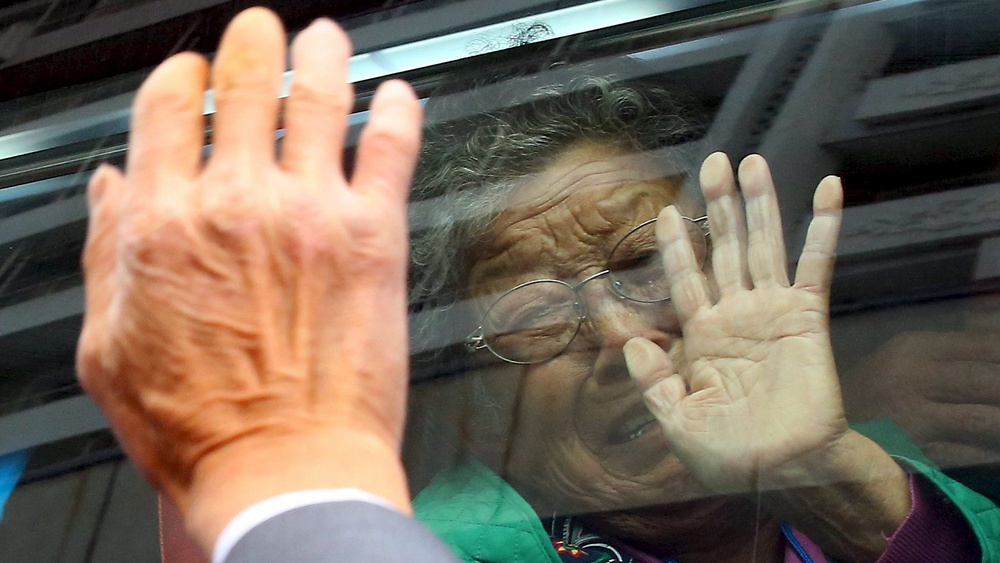
Delegations from the Democratic People's Republic of Korea (DPRK) and the Republic of Korea (ROK) agreed on Friday to arrange reunions for families separated by the Korean War between August 20 and 26, the ROK's Ministry of Unification said citing the delegations' joint statement.
The reunions, which would be the first in about three years, are among steps promised by DPRK's leader Kim Jong Un and ROK President Moon Jae-in to improve relations that had deteriorated over the DPRK's nuclear and missile programs.
The announcement came after Red Cross talks between the DPRK and the ROK on Friday to discuss organizing family reunions and other humanitarian issues.
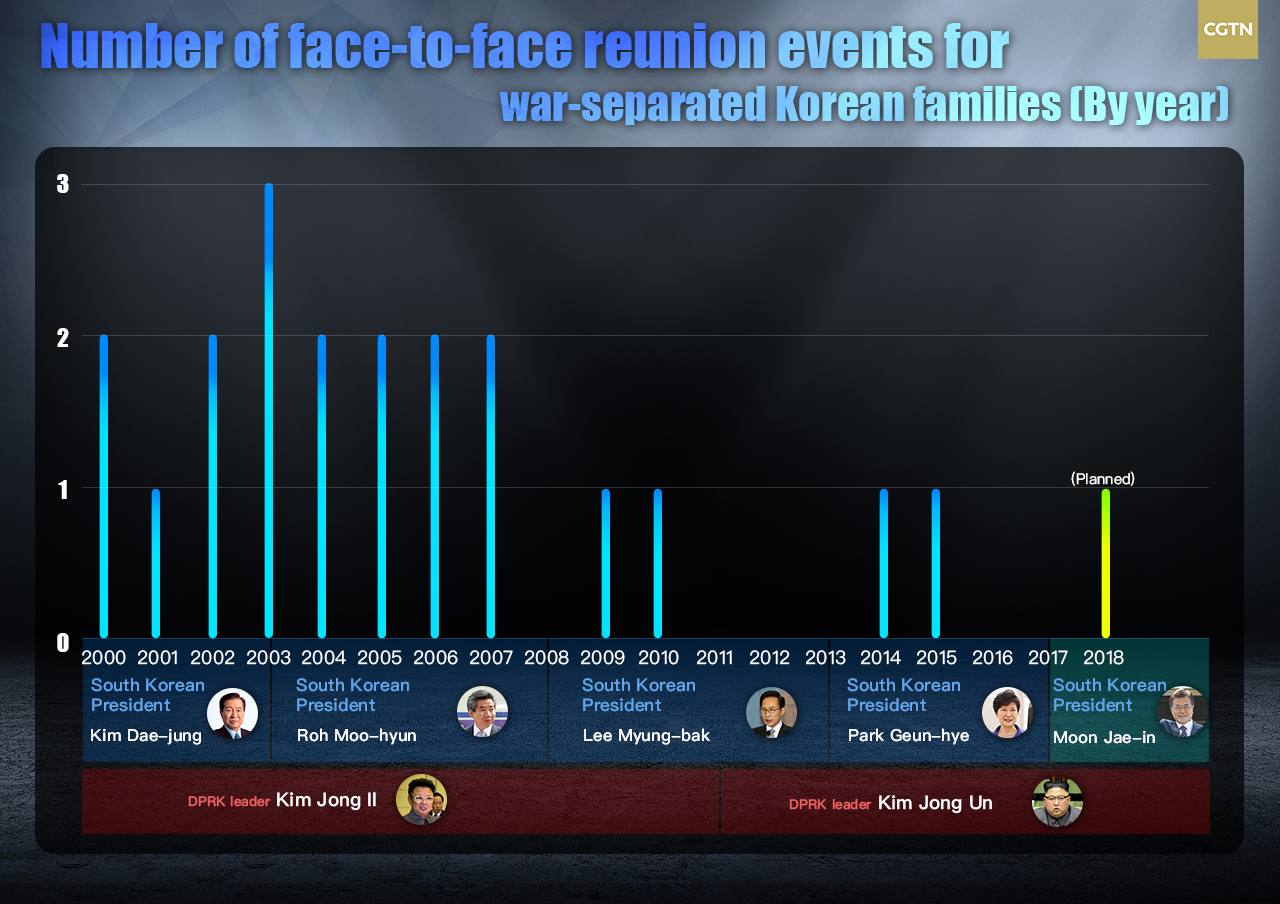
The talks started at around 10 a.m. at a hotel on Mount Kumgang on the DPRK's scenic east coast.
The DPRK sent a three-member delegation headed by Pak Yong Il, vice chairman of the Committee for the Peaceful Reunification of the Country. ROK's four-member delegation is led by Park Kyung-seo, head of the Korean Red Cross.
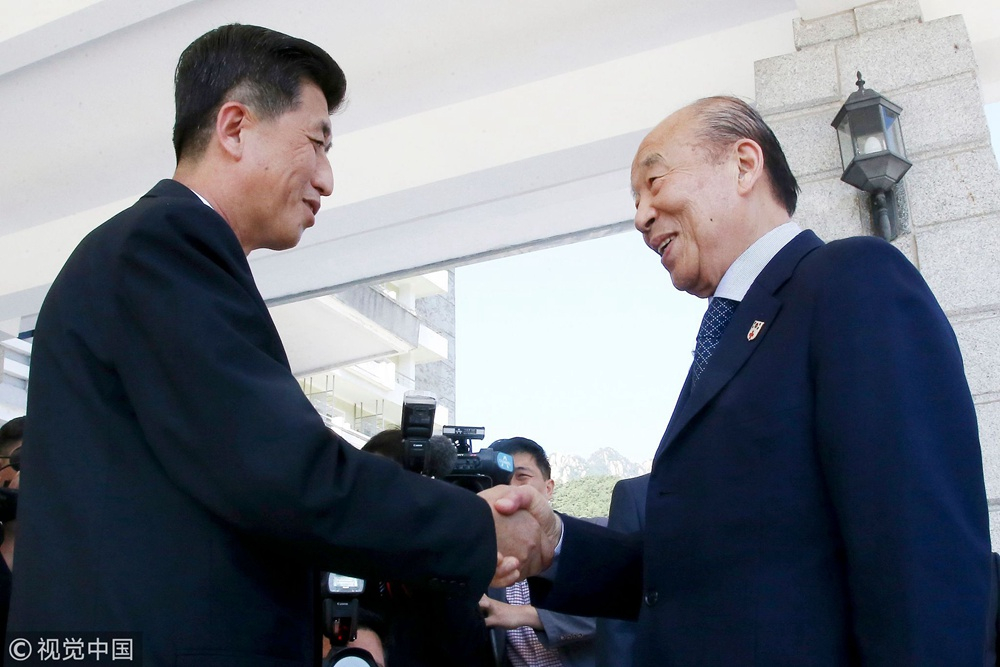
ROK's chief delegate Park Kyung-seo (R) shakes hands with his DPRK counterpart Pak Yong Il before their talks at DPRK's scenic Mount Kumgang resort, June 22, 2018. /VCG Photo via ROK Unification Ministry
ROK's chief delegate Park Kyung-seo (R) shakes hands with his DPRK counterpart Pak Yong Il before their talks at DPRK's scenic Mount Kumgang resort, June 22, 2018. /VCG Photo via ROK Unification Ministry
Pak Yong Il, head of the DPRK delegation, hailed the improvement in inter-Korean relations, noting that the two sides "have returned to a precious place" where they may "care for the wound and the predicament" in their people's minds.
The ROK's chief delegate Park Kyung-seo called on the two sides to hold the talks "from a humanitarian perspective."
Since 2000, about 23,676 separated family members from both the DPRK and the ROK have met or interacted through videolink as part of the reunion program, the Seoul-based Hyundai Research Institute think tank said.
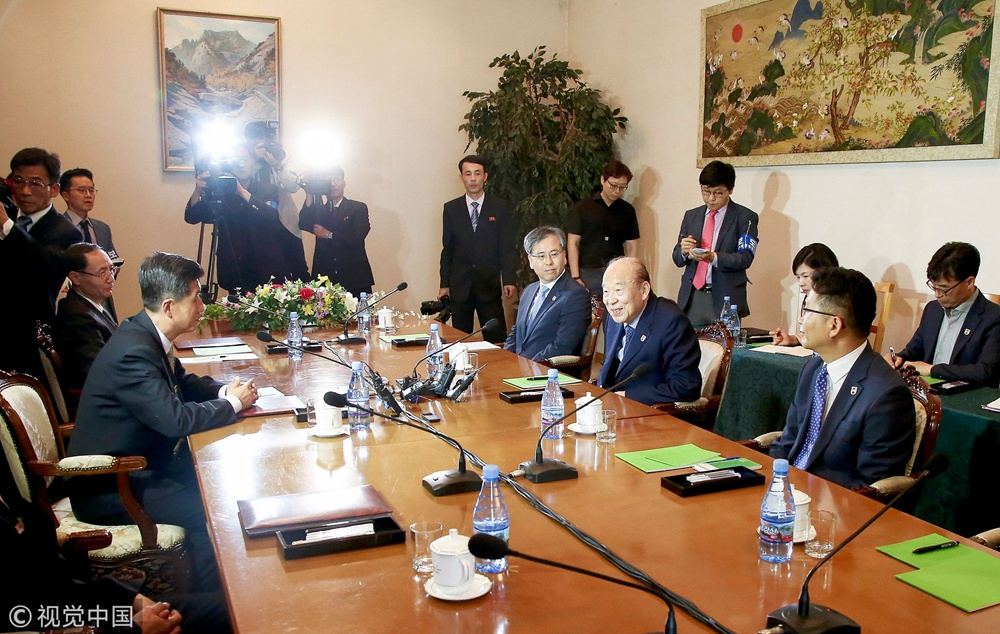
ROK's chief delegate Park Kyung-seo (R2) speaks with his DPRK counterpart Pak Yong Il (L) during the inter-Korean Red Cross talks at DPRK's scenic Mount Kumgang resort, June 22, 2018. /VCG Photo via South Korean Unification Ministry
ROK's chief delegate Park Kyung-seo (R2) speaks with his DPRK counterpart Pak Yong Il (L) during the inter-Korean Red Cross talks at DPRK's scenic Mount Kumgang resort, June 22, 2018. /VCG Photo via South Korean Unification Ministry
'Barometer' of DPRK-ROK ties
The reunion of war-separated families is viewed as a "barometer" of DPRK-ROK relations. Since 2000, the two sides held 20 rounds of face-to-face reunion events.
Such events were held every year between 2000 and 2007, when ROK Presidents Kim Dae-jung and Roh Moo-hyun were in office. The two liberal leaders implemented the Sunshine Policy, favoring greater engagement with Pyongyang.
In addition, video-based reunions were held on seven occasions from 2005 to 2007.
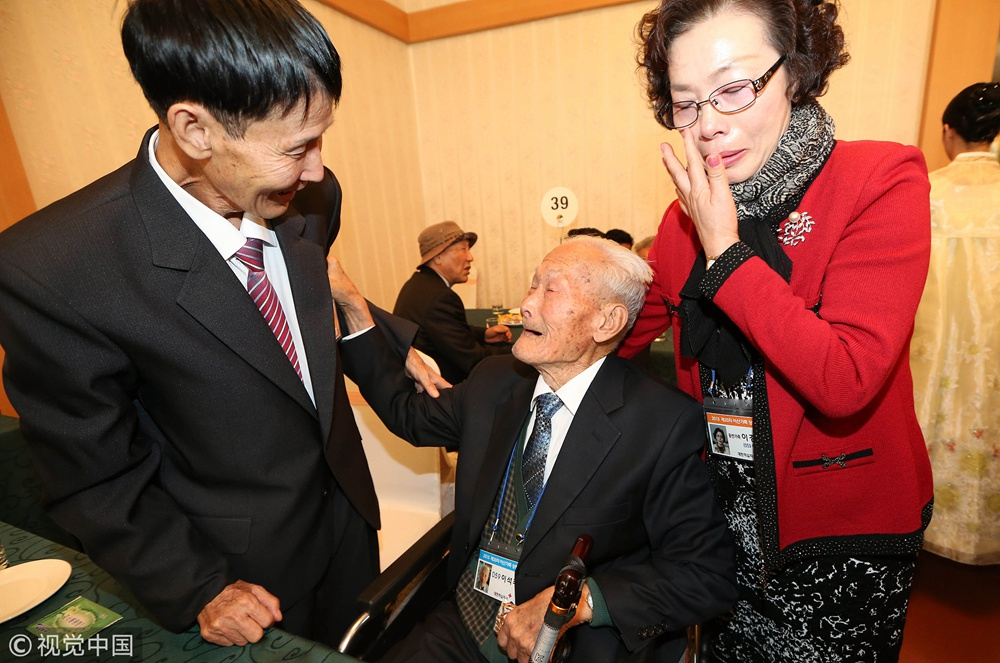
Oct. 24, 2015: ROK father Lee Seok-Ju, 98 (C) meets his DPRK son Ri Dong Wuk, 70 (L) during a family reunion event in Mount Kumgang, DPRK. /VCG Photo
Oct. 24, 2015: ROK father Lee Seok-Ju, 98 (C) meets his DPRK son Ri Dong Wuk, 70 (L) during a family reunion event in Mount Kumgang, DPRK. /VCG Photo
02:22
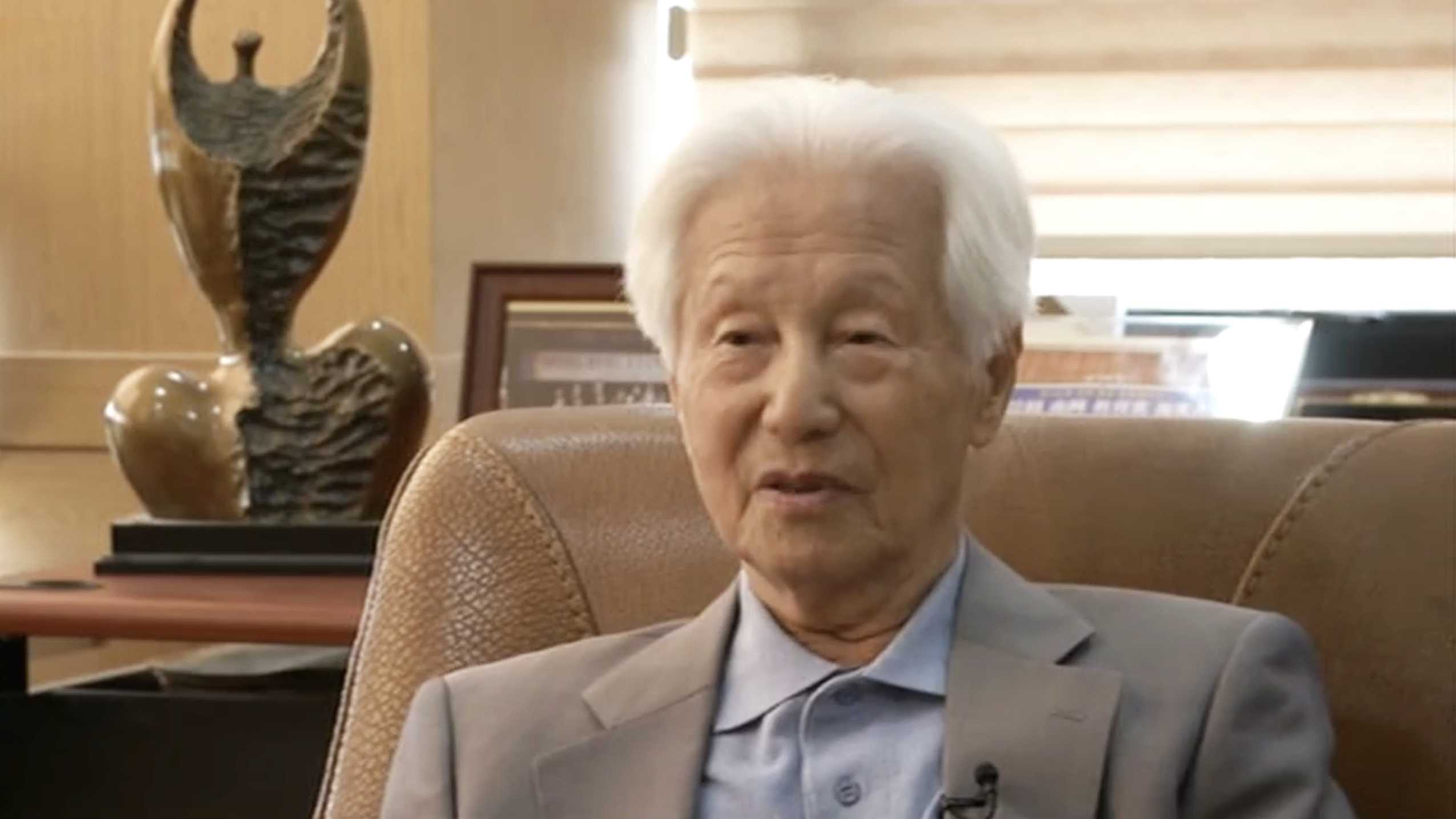
However, inter-Korean ties deteriorated after conservative ROK President Lee Myung-bak took power in 2008. Frequent missile and nuclear tests by the DPRK were blamed for worsening the situation. Tensions further escalated in 2016 and 2017 as Pyongyang accelerated its weapons programs.
As a result, only four rounds of family reunions have been held since 2008, with the latest event in October 2015.
Read more:
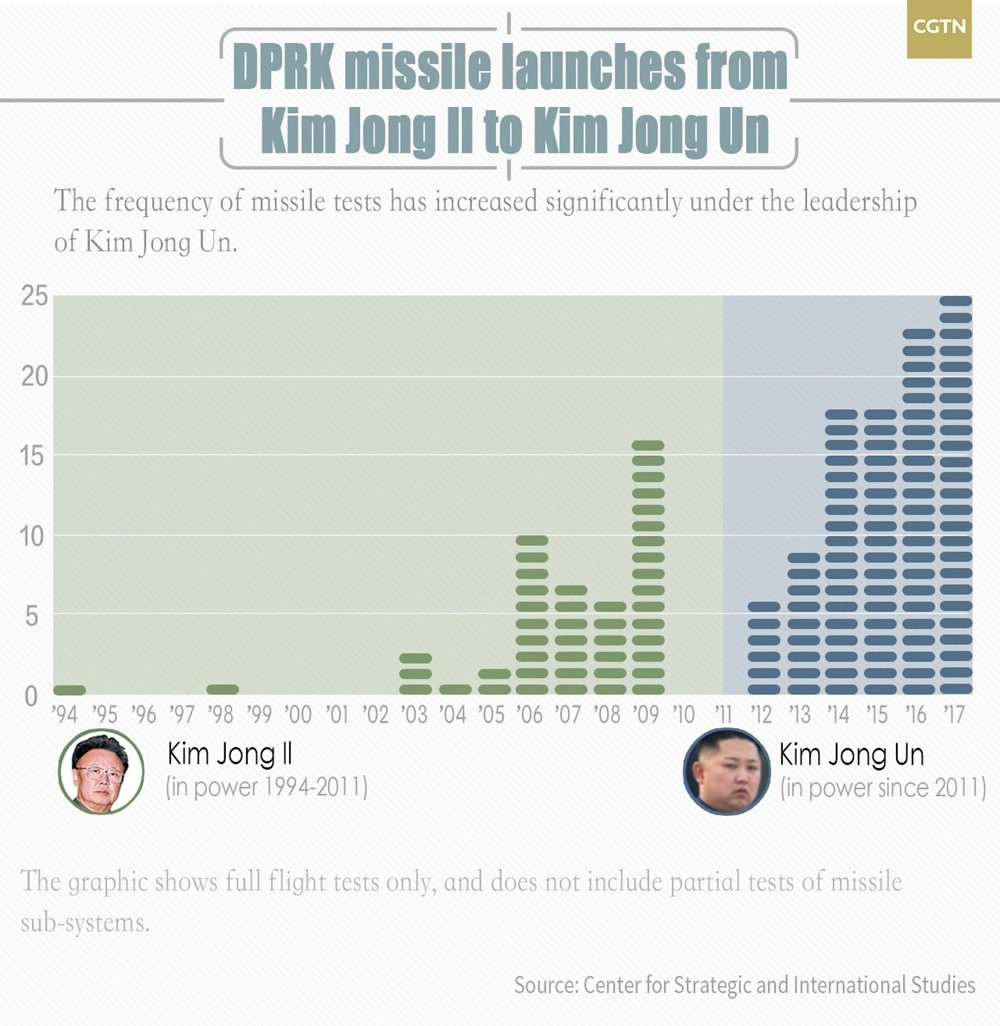
Tensions on the Peninsula began to thaw in recent months and historic summits between Kim and Moon and between Kim and US President Donald Trump have been held, leading to agreements to improve ties between Pyongyang and Seoul and between Pyongyang and Washington.
The rapprochement has given new hope for separated family members, most of whom are in their 70s or older.
The registered number of ROK nationals seeking to meet their loved ones in the DPRK totaled 132,124 as of the end of May, of whom only about 57,000 remain alive.

SITEMAP
Copyright © 2018 CGTN. Beijing ICP prepared NO.16065310-3
Copyright © 2018 CGTN. Beijing ICP prepared NO.16065310-3